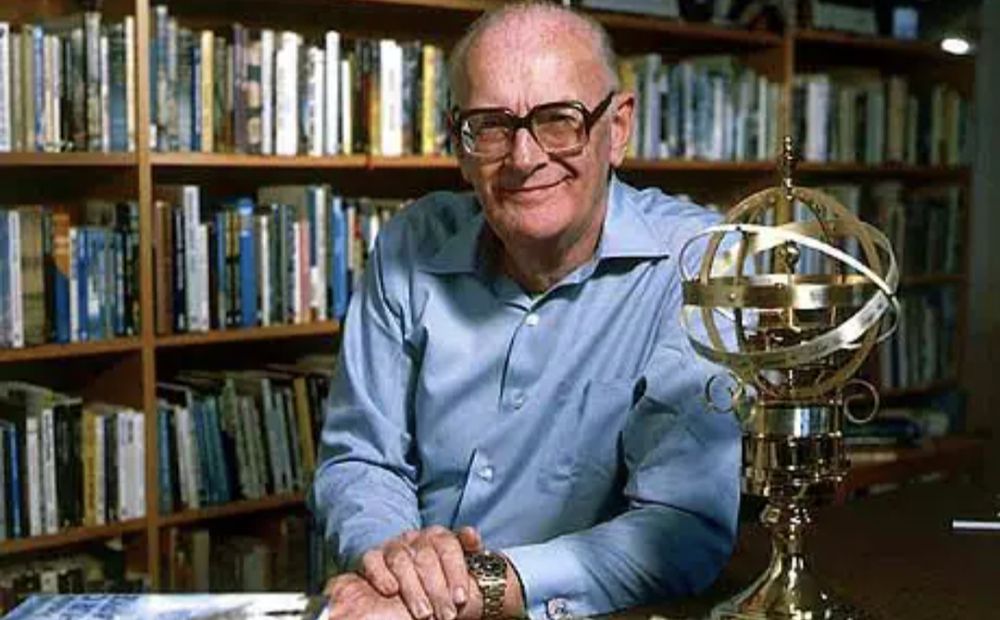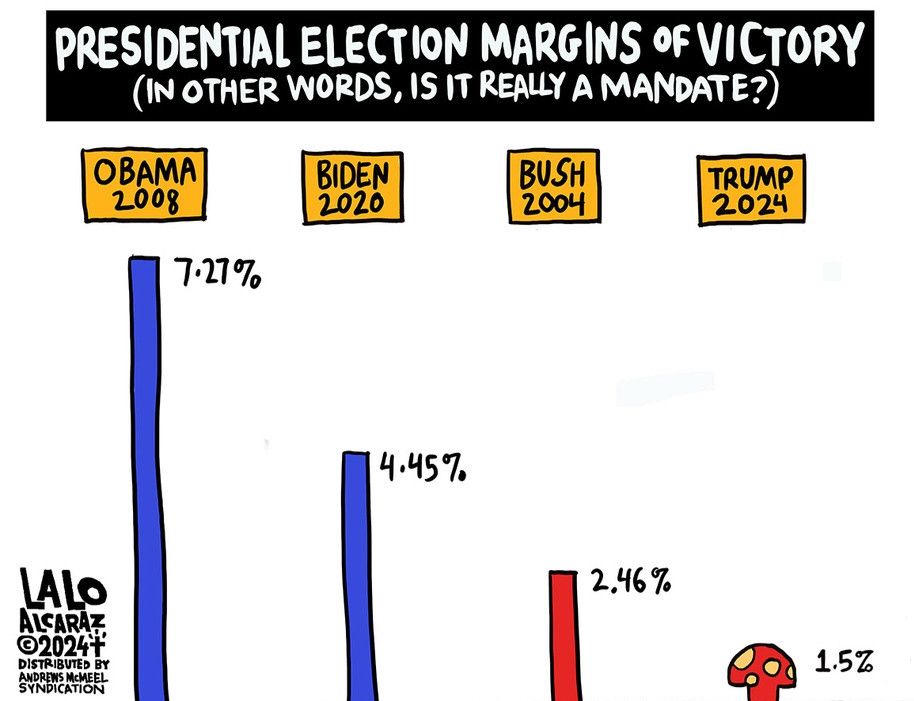Reposted by Phil Zuckerman
American Baptist: -24%
Disciples of Christ: -74%
Evangelical Lutheran: -45%
Presbyterian Church USA: -62%
Episcopal: -36%
United Church of Christ: -57%
United Methodist: -40%
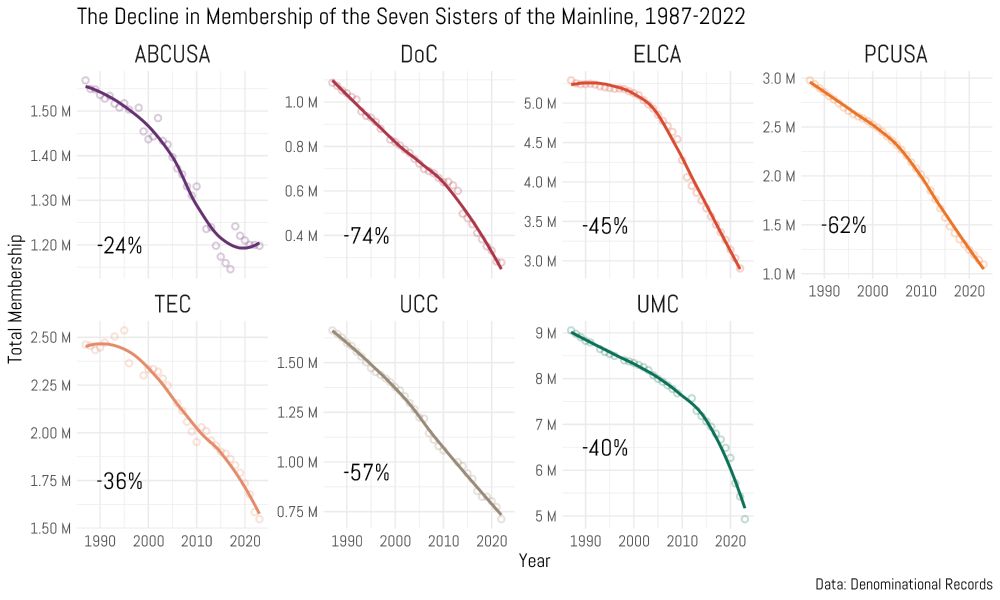

Reposted by Phil Zuckerman
Among white people who never attend:
45% are liberal.
Among weekly+ attenders:
11% are liberal.
That same pattern is there for every single racial group.
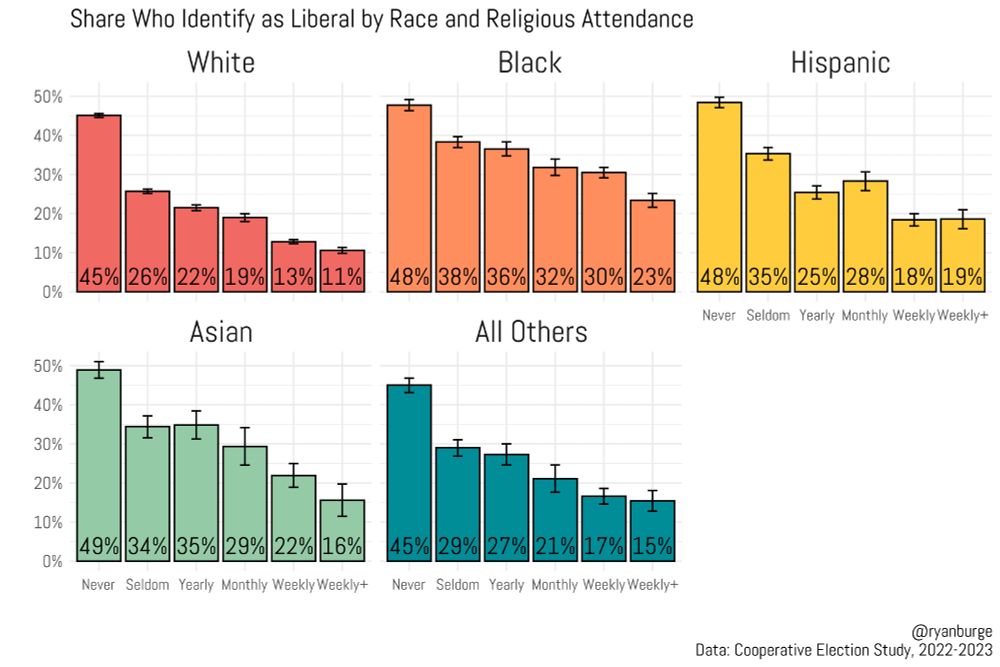
Reposted by Phil Zuckerman
According to this survey of 2,400 nones, there's a specific window of time:
15-25 years old.
That's when more than half of non-religious folks head for the exits.
The most popular age was 18.

Reposted by Phil Zuckerman
In the 1970s:
56% became mainline Protestants
20% became non-religious.
In the 2020s:
18% became mainline Protestants
59% became non-religious.

Reposted by Phil Zuckerman
About the same share of atheists describe themselves as "very liberal" or "liberal."
There's no religious group I can find that is evenly balanced between left and right on this metric.

But writing books today is like making horse shoes.
Kinda neat, but mostly useless.

Reposted by Phil Zuckerman
- 1 "Humanist" (Rep. Jared Huffman)
- 1 "agnostic" (Yassamin Ansari)
- 1 "none" (Emily Randall)
- Nearly two dozen Democrats who chose not to answer the religion question
www.friendlyatheist.com/p/one-new-me...
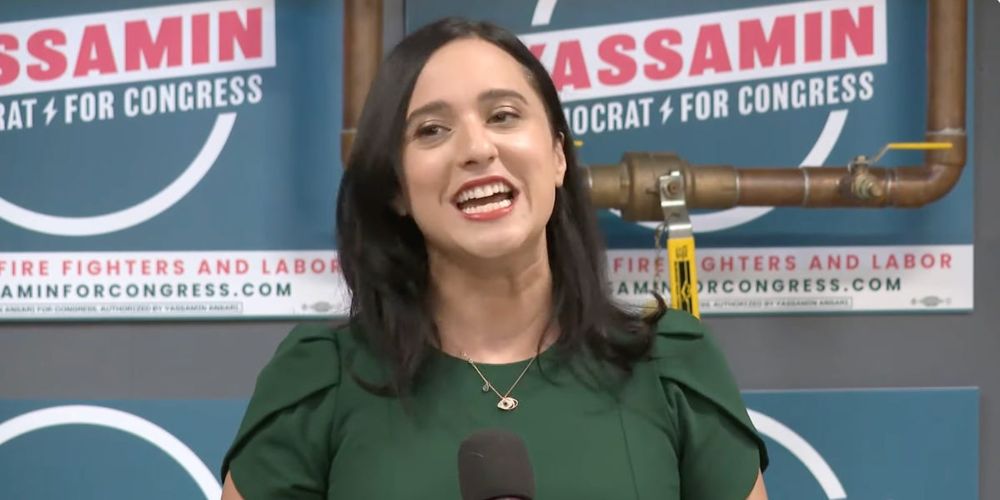
Why are the non-religious always at the forefront of social progress?
When out for a walk, people who give their barking/growling dogs treats to “distract” them are actually just rewarding them and encouraging their viciousness.

Reposted by Phil Zuckerman
t.co/TPpsCAuU9q
Democracy and secularity seem to go hand-in-hand.
I wonder which causes which?
Or are they both caused by a third factor?

Reposted by Phil Zuckerman
www.nytimes.com/2024/12/18/o...

by Arlene Stein — Reposted by Phil Zuckerman
Not: “Are you….?”
But: “Do you identify as?”
Can someone help me here?
🤔

There are many reasons that murder rates may be high or low.
But clearly, religion is not one of them.

Reposted by Phil Zuckerman
24.8% of folks reported weekly attendance in 2019.
It was 24.5% of respondents in 2023.
That difference is not statistically (or substantively) significant.

Reposted by Phil Zuckerman
-- Arthur C. Clarke, born #OTD 1917
